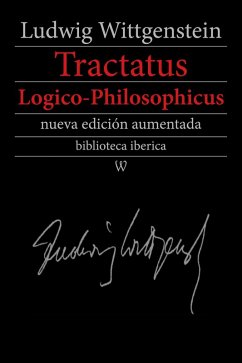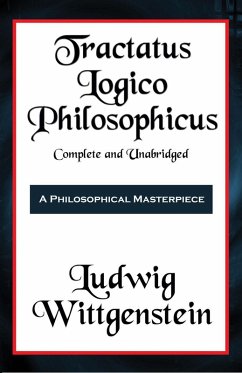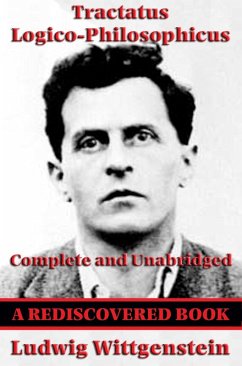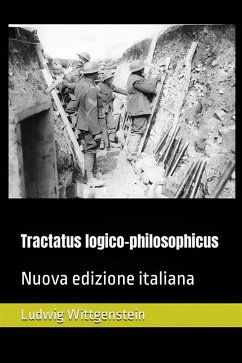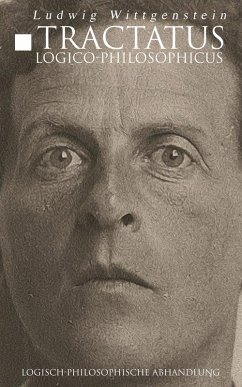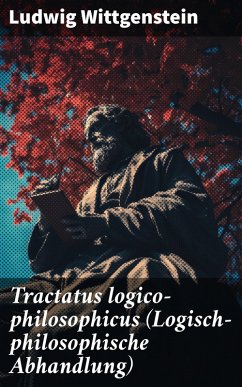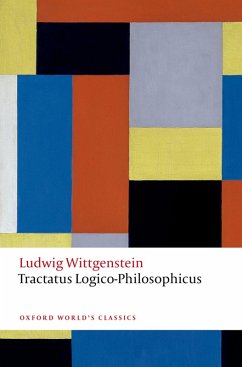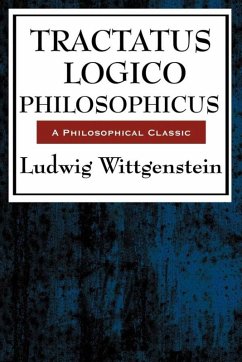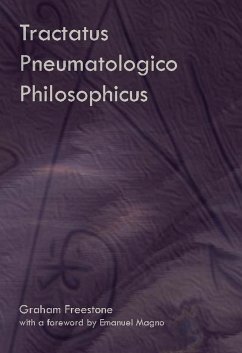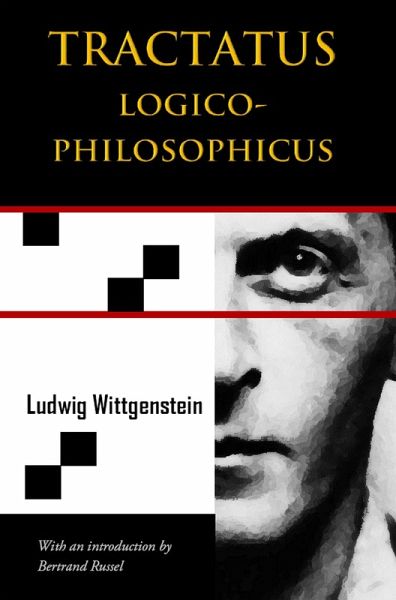
Tractatus Logico-Philosophicus (Chiron Academic Press - The Original Authoritative Edition) (eBook, ePUB)

PAYBACK Punkte
1 °P sammeln!
THE TRACTATUS LOGICO-PHILOSOPHICUS is the only book-length philosophical work published by the Austrian philosopher Ludwig Wittgenstein in his lifetime. The project had a broad aim - to identify the relationship between language and reality and to define the limits of science - and is recognized as a significant philosophical work of the twentieth century. Wittgenstein wrote the notes for the Tractatus while he was a soldier during World War I and completed it when a prisoner of war at Como and later Cassino in August 1918. It was first published in German in 1921 as 'Logisch-Philosophische Ab...
THE TRACTATUS LOGICO-PHILOSOPHICUS is the only book-length philosophical work published by the Austrian philosopher Ludwig Wittgenstein in his lifetime. The project had a broad aim - to identify the relationship between language and reality and to define the limits of science - and is recognized as a significant philosophical work of the twentieth century. Wittgenstein wrote the notes for the Tractatus while he was a soldier during World War I and completed it when a prisoner of war at Como and later Cassino in August 1918. It was first published in German in 1921 as 'Logisch-Philosophische Abhandlung'. The Tractatus was influential chiefly amongst the logical positivists of the Vienna Circle, such as Rudolf Carnap and Friedrich Waismann. Bertrand Russell's article "The Philosophy of Logical Atomism" is presented as a working out of ideas that he had learned from Wittgenstein. (more on: www.wisehouse-classisc.com)
Dieser Download kann aus rechtlichen Gründen nur mit Rechnungsadresse in A, D ausgeliefert werden.




